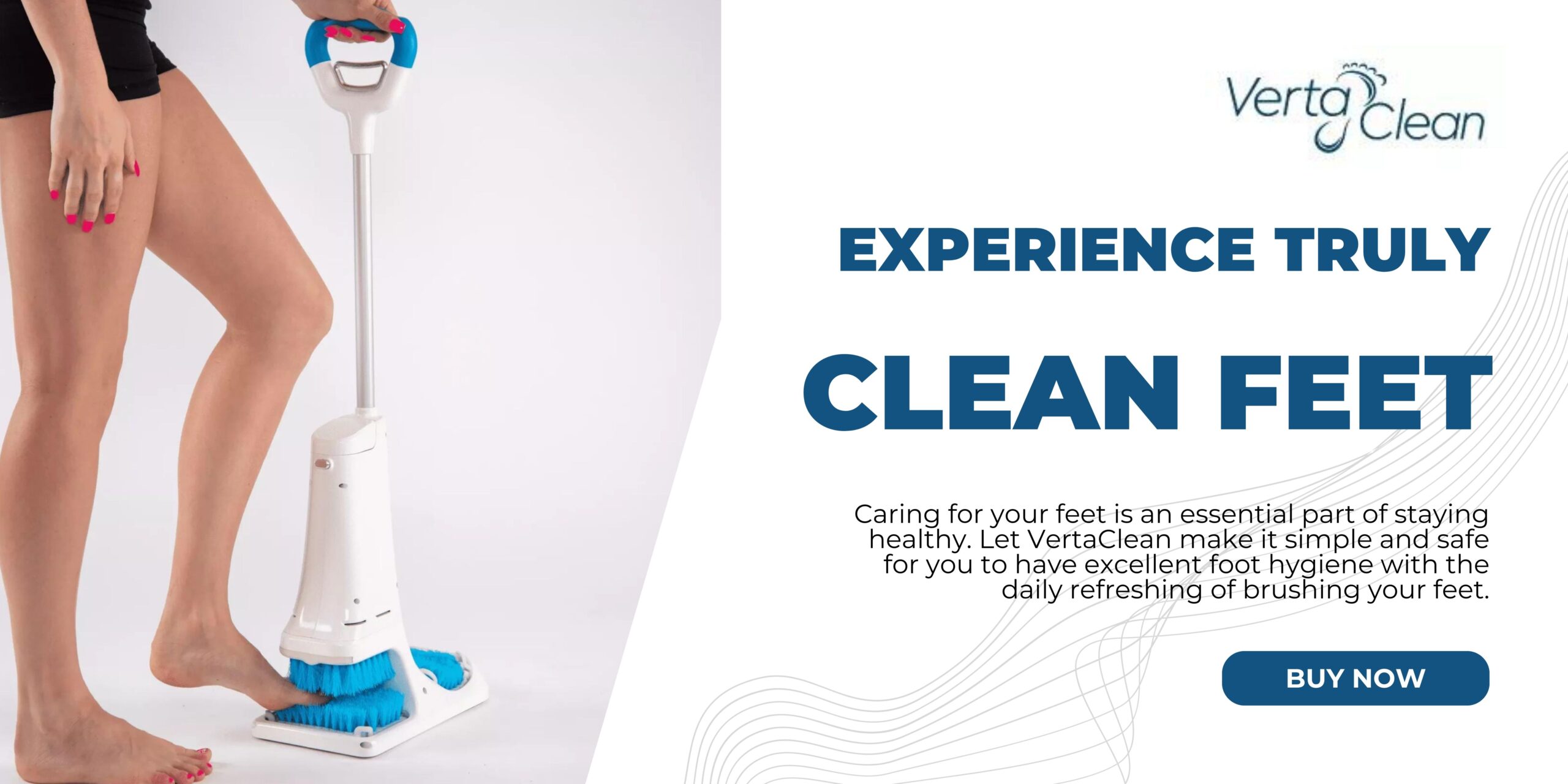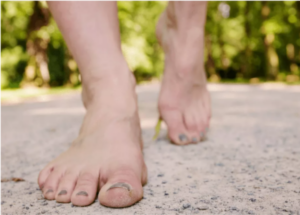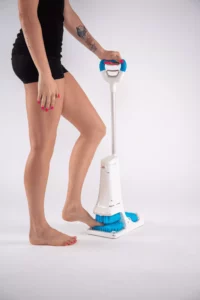When it comes to maintaining personal hygiene, a foot scrubber can be an indispensable tool for many. Designed to exfoliate and cleanse, these products promise to leave our feet feeling soft and refreshed. However, as with any product that interacts with our home plumbing systems, there are considerations to be made regarding its impact. One such concern that might not immediately come to mind is whether the use of a foot scrubber can lead to any damage to the shower drain. This question is not only relevant to individual users looking to protect their home infrastructure but also to those conscious of the broader implications of the products they use on the environment and plumbing systems.
Firstly, understanding the composition and texture of the foot scrubber material is crucial. The materials used can vary widely, from natural substances like pumice and loofah to synthetic foams and plastics. The durability and abrasive nature of these materials can affect not only their efficacy but also their potential to cause wear and tear on your shower drain.
Secondly, the size and shape of particles when the foot scrubber disintegrates might pose a risk. Over time, with repeated use, some scrubbers may break down into smaller particles that could escape into the drain. Depending on their size, these fragments could either pass harmlessly through the plumbing or contribute to a buildup that may lead to clogs.
The third subtopic to consider is the compatibility of the foot scrubber material with the plumbing system. Some materials may interact negatively with the pipes, potentially leading to corrosion or degradation, especially if they are not designed to be drain-safe.
Moreover, the potential for clogging and blockages in the shower drain cannot be overlooked. Bits of the foot scrubber, combined with other debris such as hair and soap scum, could create substantial blockages over time, leading to the need for maintenance or repair.
Lastly, the chemical interactions between the foot scrubber ingredients and the drain materials may also warrant attention. Certain foot scrubbers contain added ingredients such as essential oils or exfoliating acids, which, although beneficial for foot care, might have unforeseen effects on the materials used in plumbing systems.
In this article, we will delve into these subtopics to provide a comprehensive analysis of whether or not a foot scrubber could potentially be a hidden menace to your shower drain, guiding you through the factors that could influence its impact on your bathroom plumbing.
Composition and texture of the foot scrubber material
When considering the safety and compatibility of a foot scrubber with your shower drain, the composition and texture of the foot scrubber material are important factors to evaluate. The material from which the foot scrubber is made can vary widely, from natural substances like pumice or loofah to synthetic materials like plastic or silicone.
A foot scrubber made from natural materials may be less likely to cause harm to your shower drain because these materials often degrade over time and are less likely to create blockages. However, it’s essential to consider how quickly the material breaks down and whether the particles that disintegrate are small enough to pass through your plumbing without causing issues.
On the other hand, foot scrubbers made from synthetic materials are typically more durable and less prone to disintegration. While this may be good for the longevity of the scrubber, it also means that if pieces break off, they can be more problematic for your plumbing. Synthetic particles are often not biodegradable and could potentially contribute to clogs or blockages if they accumulate in the drain.
Additionally, the texture of the foot scrubber is also a point of consideration. Scrubbers with a very abrasive surface might shed more particles, which could hasten the potential for a clogged drain. In contrast, smoother scrubbers may shed less but still pose a risk if large pieces break off.
It is always advisable to use any foot scrubber according to the manufacturer’s guidelines and to be mindful of the potential for pieces to break off and enter the drain. Regular maintenance and cleaning of your shower drain can help mitigate the risk of blockages, regardless of what type of foot scrubber you use. If you notice significant wear or disintegration of your foot scrubber, it may be time to replace it to prevent any pieces from causing problems in your plumbing system.
Size and shape of particles when the foot scrubber disintegrates
When considering the potential for a foot scrubber to cause damage to a shower drain, it’s essential to consider the size and shape of particles the scrubber may produce as it disintegrates. Over time, with regular use, a foot scrubber can start to wear down. This wear and tear might cause the scrubber to break apart, shedding small particles that could end up going down the drain.
The size and shape of these particles are crucial factors in determining whether they could cause a clog or blockage. Large or irregularly shaped particles are more likely to get caught in the drain or the pipes, potentially accumulating over time and leading to a clog. Even if the particles are biodegradable, if they do not dissolve or break down quickly enough, they can still contribute to blockages, especially if they combine with other debris such as hair or soap scum that commonly accumulates in shower drains.
Furthermore, the hardness of the particles can also play a role in how they interact with the plumbing. Hard particles might not only contribute to clogs but could also cause abrasion to the plumbing fixtures if they are caught and move through the system with water flow. Soft particles, on the other hand, are less likely to cause physical damage but can still be problematic if they do not dissolve easily.
In conclusion, when evaluating the potential risks a foot scrubber poses to the shower drain, it is important to consider the nature of the particles it may release upon disintegration. It is advisable to choose a scrubber that is made of materials known to break down into small, soft particles that will not easily contribute to clogging and are less likely to damage plumbing systems. Regular maintenance and cleaning of the shower drain can also help mitigate the risks associated with foot scrubber particles.
Compatibility of the foot scrubber material with the plumbing system
When considering the compatibility of a foot scrubber material with the plumbing system, it is important to understand how the properties of the scrubber might interact with the various components of your home’s drainage system. The plumbing system, especially the segment that handles waste-water from showers, is designed to transport water and small particles smoothly to the sewer or a septic tank without causing blockages.
The material of the foot scrubber should be such that it does not break down into pieces that could either get stuck in the trap, which is designed to catch debris, or adhere to the walls of the pipes, narrowing the passageways and reducing the efficiency of the water flow. Materials that could expand when wet, such as certain sponges or non-biodegradable plastics, might pose a risk if small pieces break off and enter the drain.
Moreover, the durability of the foot scrubber material is also a consideration. If the material is too fragile, it may disintegrate quickly, and the resulting particles could accumulate in the plumbing, potentially leading to blockages over time. Conversely, if the material is too hard or abrasive, it could damage the protective lining inside the pipes or the drain itself, leading to leaks or other plumbing issues.
To ensure the foot scrubber is compatible with your plumbing system, it’s advisable to choose products that are made from materials that are safe for drains and are unlikely to break down into problematic particles. Manufacturers often provide information about the suitability of their products for use with plumbing systems, so looking for such assurances can be a helpful step in selecting a foot scrubber that will not cause damage to your shower drain. If in doubt, consulting a plumber or a specialist in bathroom accessories can provide guidance tailored to your specific plumbing configuration and the products you are considering.
Potential for clogging and blockages in the shower drain
When considering the use of a foot scrubber in the shower, it’s important to be aware of the potential for clogging and blockages in the shower drain. This potential largely depends on the type and design of both the foot scrubber and the shower drain.
The foot scrubber may be made from various materials such as plastic, silicone, pumice, or other natural materials. These materials should be designed to withstand water exposure without breaking down easily. However, over time or with excessive force, pieces of the foot scrubber might come off. If these pieces are large enough, they could get trapped in the shower drain.
Moreover, foot scrubbers that are used to exfoliate the skin can also contribute to clogging the drain with dead skin cells. Although skin cells are biodegradable, in combination with soap, hair, and other debris, they can form a blockage over time. This is particularly true if the shower drain has a narrow opening or if the plumbing system is already partially clogged with other materials.
To prevent clogging, it’s advisable to regularly clean and maintain both the foot scrubber and the shower drain. Additionally, opting for a foot scrubber that is less prone to disintegration and ensuring that it is used gently can reduce the risk of pieces breaking off and causing blockages. If a foot scrubber starts showing signs of wear, it should be replaced before it disintegrates further.
In the case that a clog does occur, it’s often necessary to use a plunger or a plumber’s snake to remove the blockage. For more persistent or severe clogs, it might be necessary to call a professional plumber. Preventative measures such as using a drain protector to catch debris can also be helpful in mitigating the risk of clogs related to the use of a foot scrubber in the shower.
Chemical interactions between the foot scrubber ingredients and the drain materials.
Foot scrubbers are designed to help exfoliate and clean the feet, often containing a variety of ingredients, ranging from natural exfoliants to chemicals designed to soften or remove dead skin. When considering the potential for a foot scrubber to cause damage to a shower drain, it’s important to consider not just the physical aspects, such as size and shape of particles, but also the chemical interactions that might occur between the foot scrubber ingredients and the materials that make up the drain.
Most modern plumbing systems are designed to handle a wide range of substances that typically go down our drains. However, some ingredients in foot scrubbers, particularly those that are acidic or oil-based, could potentially react with the materials in the drain. For instance, if the drain pipes are made of metal, certain chemicals might cause corrosion over time. This could weaken the pipes and lead to leaks or breaks.
Another concern could be the effect of oils or waxes, which might be present in some foot scrubs. These substances can solidify in the pipes, especially when combined with other debris like hair or soap scum, creating clogs that can impede water flow.
It’s also important to note that some foot scrubbers may contain antibacterial or antifungal agents. While these are beneficial for foot health, they could disrupt the balance of bacteria in septic systems or municipal water treatment facilities if they are not designed to degrade safely.
When using any kind of product in the shower, including foot scrubbers, it’s a good idea to be aware of the ingredients it contains and to follow any instructions provided by the manufacturer regarding safe use. When in doubt, consulting with a plumber or the product manufacturer can provide specific guidance on whether a particular foot scrubber is safe for your plumbing system.




